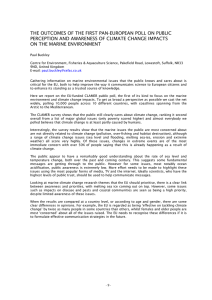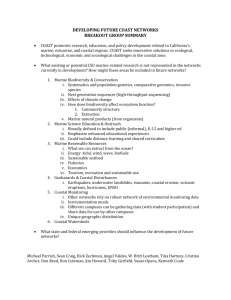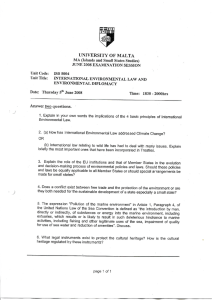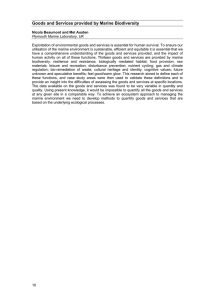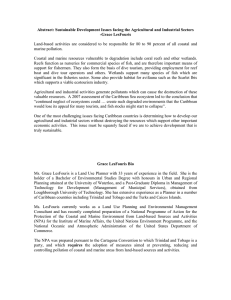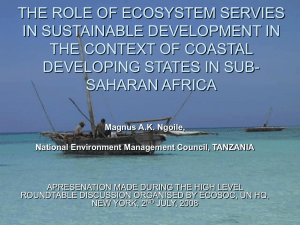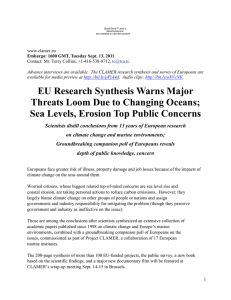EXPLORING PUBLIC UNDERSTANDING OF, AND RESPONSES TO, MARINE CLIMATE CHANGE
advertisement
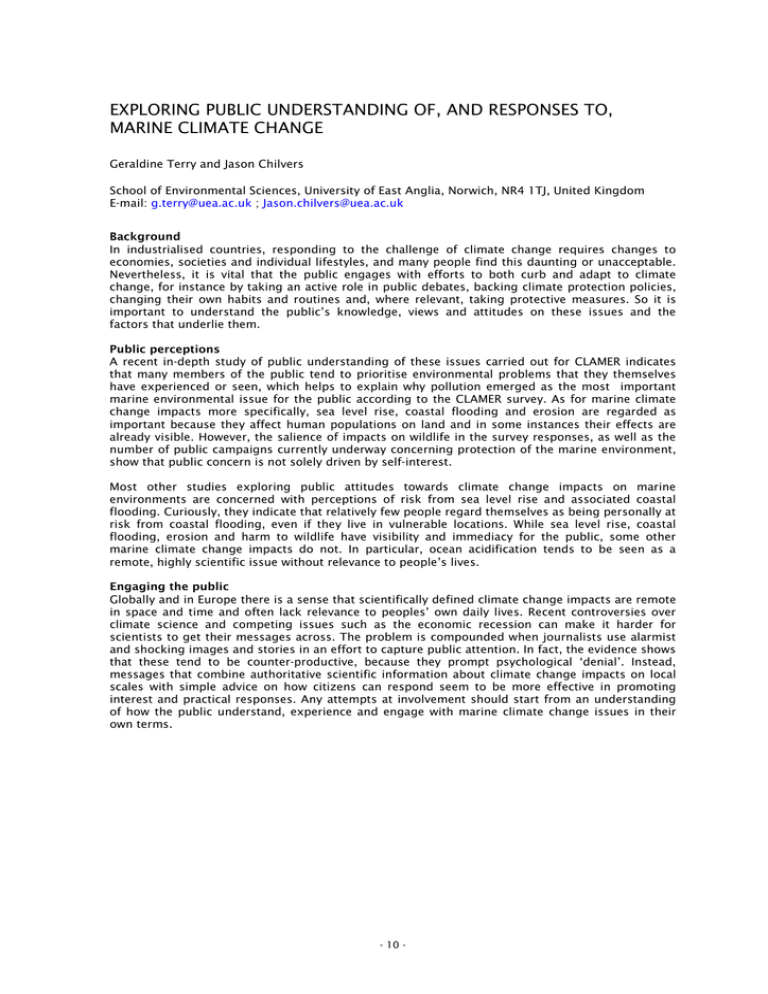
EXPLORING PUBLIC UNDERSTANDING OF, AND RESPONSES TO, MARINE CLIMATE CHANGE Geraldine Terry and Jason Chilvers School of Environmental Sciences, University of East Anglia, Norwich, NR4 1TJ, United Kingdom E-mail: g.terry@uea.ac.uk ; Jason.chilvers@uea.ac.uk Background In industrialised countries, responding to the challenge of climate change requires changes to economies, societies and individual lifestyles, and many people find this daunting or unacceptable. Nevertheless, it is vital that the public engages with efforts to both curb and adapt to climate change, for instance by taking an active role in public debates, backing climate protection policies, changing their own habits and routines and, where relevant, taking protective measures. So it is important to understand the public’s knowledge, views and attitudes on these issues and the factors that underlie them. Public perceptions A recent in-depth study of public understanding of these issues carried out for CLAMER indicates that many members of the public tend to prioritise environmental problems that they themselves have experienced or seen, which helps to explain why pollution emerged as the most important marine environmental issue for the public according to the CLAMER survey. As for marine climate change impacts more specifically, sea level rise, coastal flooding and erosion are regarded as important because they affect human populations on land and in some instances their effects are already visible. However, the salience of impacts on wildlife in the survey responses, as well as the number of public campaigns currently underway concerning protection of the marine environment, show that public concern is not solely driven by self-interest. Most other studies exploring public attitudes towards climate change impacts on marine environments are concerned with perceptions of risk from sea level rise and associated coastal flooding. Curiously, they indicate that relatively few people regard themselves as being personally at risk from coastal flooding, even if they live in vulnerable locations. While sea level rise, coastal flooding, erosion and harm to wildlife have visibility and immediacy for the public, some other marine climate change impacts do not. In particular, ocean acidification tends to be seen as a remote, highly scientific issue without relevance to people’s lives. Engaging the public Globally and in Europe there is a sense that scientifically defined climate change impacts are remote in space and time and often lack relevance to peoples’ own daily lives. Recent controversies over climate science and competing issues such as the economic recession can make it harder for scientists to get their messages across. The problem is compounded when journalists use alarmist and shocking images and stories in an effort to capture public attention. In fact, the evidence shows that these tend to be counter-productive, because they prompt psychological ‘denial’. Instead, messages that combine authoritative scientific information about climate change impacts on local scales with simple advice on how citizens can respond seem to be more effective in promoting interest and practical responses. Any attempts at involvement should start from an understanding of how the public understand, experience and engage with marine climate change issues in their own terms. - 10 -

